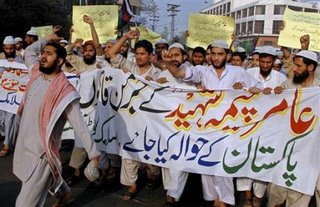
The 2007 Annual Meeting of the Southern Sociological Society
http://www.msstate.edu/org/sss/07Meet/Publish/
April 11-14, 2007, Atlanta, GA
Invitation for Panel Papers
Today, Islam is a belief system that represents one-fifth
of the World’s population located from Morocco to Indonesia,
and one of the world’s fastest growing religions. The
contribution of Islam to world civilization is undeniable,
however in the last one hundreds years, Muslims have been
faced with economic underdevelopment, dictatorship and
antidemocratic regimes, and most importantly, modernity.
What does modernity mean for Muslims? Will there be an
Islamic renaissance? How about an Islamic reformation?
On the other hand, Islam is not just a religion, it is also
likely to manifest itself as a social, economic and political
structure; therefore, one must understand the socio-historical
background and origin of the Islamic belief system, as well as
its underpinning theoretical thinkers and Islamist Social Movements.
We would like to organize a panel entitled, "Islam, the Sociology
of Islam, and Islamist Movements" and we welcome submissions
related to the subject, but not limited to the following:
Islam and Modernity,
De-secularization Process in the Muslim Populated Countries,
Islamist Movements and Collective identity,
Islam/Alternative Globalization versus Western Based Weberian Capitalist Globalization
Islam and Imperialism/Colonialism/Orientalism
Deadline: DECEMBER 12, 2006
Please send abstract to:
Tugrul Keskin keskintx@jmu.edu James Madison University
or
Dr. Dale Wimberley dale.wimberley@vt.edu Virginia Tech. University